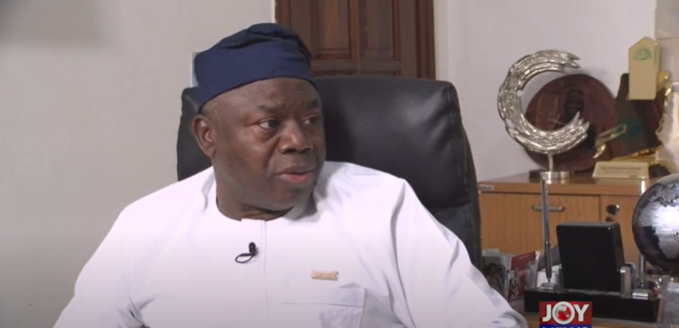Former President of the Ghana Association of Banks, Alhassan Andani, says the government should have allowed institutional disciplines to work in regards to the banking sector clean-up.
According to him, the banking sector clean-up was a missed opportunity to ensuring that state institutions instilled discipline into the banking sector with regards to banks and investors.
He indicated that the recent banking sector crisis and its subsequent clean-up operation which cost the country an estimated GH₵10.98bn ($2.1bn), equivalent to just over 3% of the nation’s GDP in 2019, had been carried out with so many institutional compromises.
These compromises, he said, were to ensure that investors who had deposited funds into the banks at risk of insolvency did not lose their deposits, a situation, which he said, should not have been encouraged.
Speaking on PM Express Business Edition, he said, “We should have allowed the institutional disciplines to work. Because if you come to bank A which says ‘look, I understand what is going on, I’ll give you 15% on your deposit’ and you say no. You take that deposit and go to another institution that says ‘I’ll give you 40%’ and you make that decision.
“You, the investor make that decision instead of leaving it with the bank that will return your principal at 15%, you took the money to a bank or an institution that promised you 45%, and you took the 45% for a couple of months and later on that institution disappears and you come up and say somebody should look after that deposit? That was for me again a difficult lesson that we needed everybody to learn. But government didn’t do that.”
The Economist said the government should have instead enforced the Deposit Insurance to cater to the issue of deposits instead of spending billions paying the deposits of all investors at the expense of taxpayers’ funds.
“They came and protected deposits so they’ll say they spent 25billion rescuing banks, no, they spent 25billion ensuring that depositors didn’t lose their money. So the 25billion government is supposed to have spent apart from fees and any other things that we couldn’t have traced, was to ensure that if you had a 100,000 with the bank that failed, you got your money back.
“At that time we had set up the Deposit Insurance which had rules that said that there is minimum deposit that when a bank fails is guaranteed by the Deposit Insurance, they’ll pay that to you. And if you look at it at that time 6000 Ghana cedis covered most households, poor households were covered.
“But we didn’t kick in the deposit rules, we put it aside and protected every single depositor. So that’s not a classic bank failure, so it’s all institutional compromises that didn’t play to the rules and we got ourselves into some kind of fudged exit and managed settlement,” he said.
Latest Stories
-
H4P Organization champions inclusive healthcare for PWDs at Accra Rehabilitation Centre
18 minutes -
COMSYS Ghana Ltd crowned Enterprise Solution Provider and Network Infrastructure Company of the Year
18 minutes -
Andy Dosty leaves Hitz FM’s morning show for new afternoon programme
25 minutes -
Hitz FM unveils new programming line-up, promises a refreshing radio experience
33 minutes -
Kensei-Kai Foundation partners W.K.M Karate Association to roll out high school karate in Wa
37 minutes -
2 more youths shot at Nkwanta outskirts as violence continues
47 minutes -
Speaker decries low female representation in parliament; calls for reforms
49 minutes -
Ace Liam: 2-year-old Ghanaian Guinness World Record sensation bags Global Award
54 minutes -
NSMQ 2025: Methodist SHTS, Berekum qualifies for national championship for the 2nd time
56 minutes -
Gov’t increases LEAP budget, begins nationwide disbursement
60 minutes -
Over 70% of Ghanaian adults suffer low back pain – Physiotherapist raises alarm
1 hour -
Fuel truck crashes near Benas Filling Station in Amanase
1 hour -
Dr. Kofi Amoah calls for National Rescue Fund, pledges GH₵100k to kickstart initiative
1 hour -
Ghana must clean up utility finances to win in regional power trade – Jabesh Amissah-Arthur
1 hour -
Parliament marks global day with bold commitment to gender equality and open governance
1 hour

